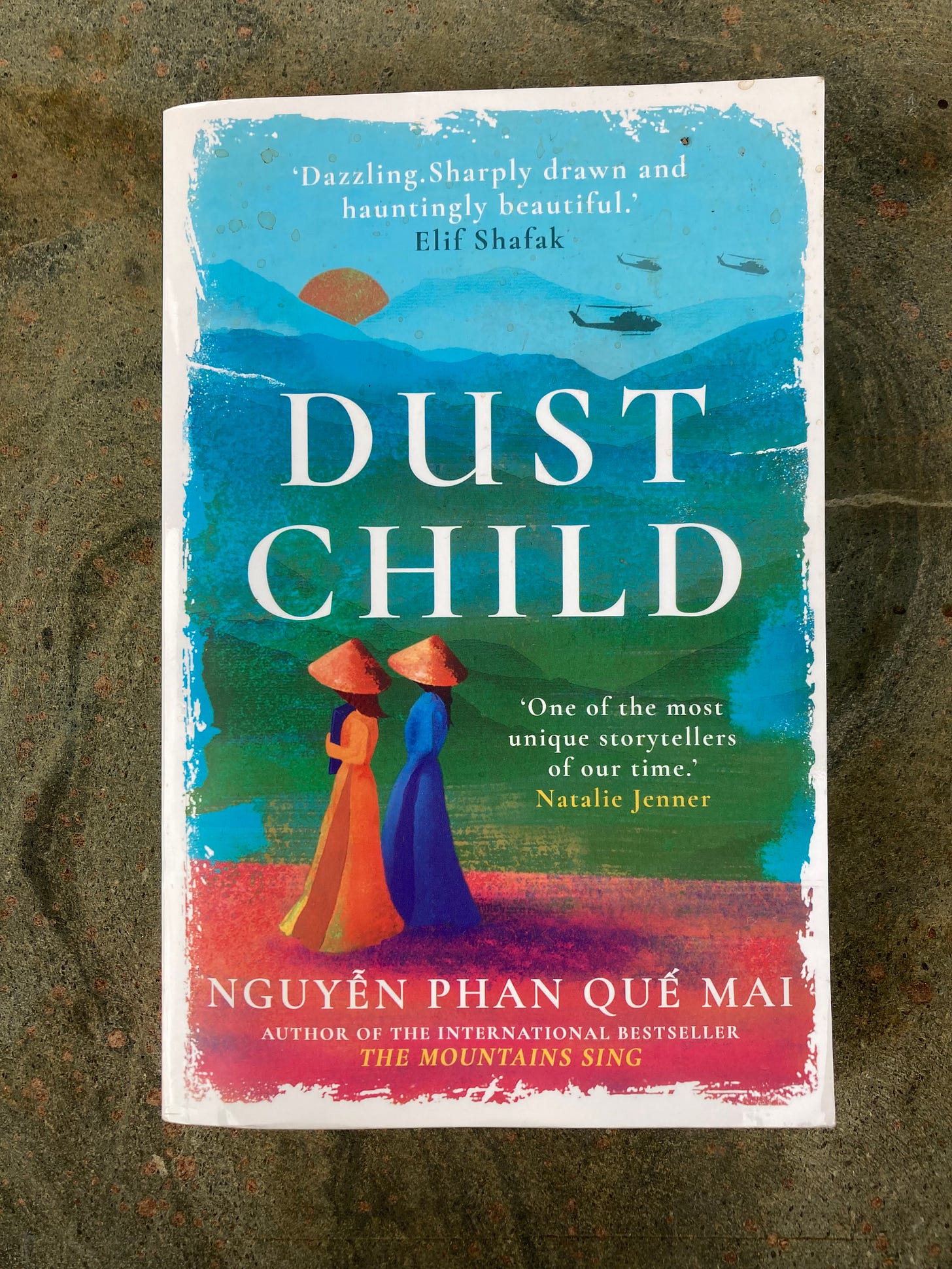April Books
I honestly thought I was going to reach the end of the month without finishing a single book and then, the last weekend of April, everything fell into place and I ended up with ample time to sit in my garden drinking coffee and reading. Utter bliss.
Dust Child, is Nguyễn Phan Quế Mai’s second novel, after The Mountains Sing. I adored her debut and bought this as soon as it came out but it lingered on my shelf longer than I would have preferred. Told from three perspectives, it tells the story of Vietnam in the aftermath of the war, and how people were forever affected by the conflict. Phong is the child of a black US soldier and a Vietnamese “bar girl,” shunned in post-war Vietnam for his darker skin, evidence of his descent from “the enemy”, forced to live on the streets, harbouring dreams that his father might turn up and take him back to a better life in America; Trang and Quy’nh are sister from rural Vietnam who move to Saigon in search of work that will support their parents, and soon are dragged into sex work; Dan is a former helicopter pilot with untreated PTSD who fathered a child with a “bar girl” and abandoned them both as soon as his tour was over. On the surface the connections between the stories seem obvious but Nguyễn Phan Quế Mai is a better writer than that, and the story is as gripping as it is heartbreaking.
A new issue of Gutter is always cause for celebration. Excellent work from Rachelle Atalla (whose third novel, Salt Flats, is sitting on the shelf judging me) and Harry Josephine Giles, as well as a series of commissions based on the work of Alasdair Gray to name but a few highlights.
No One Knows is a collection of Dazai’s short fiction translated by Ralph McCarthy, written from a female perspective. Dazai is mostly known for his brutally honest but often comic writing about dissolute, depressed, addicted men (usually writers), but everything he wrote was grounded in voice and perspective, usually long, flowing monologues, and once in a while he tried a female voice. It isn’t his best work, but definitely one for Dazai completists like me. Some stories are more successful than others, particularly those that show the outbreak of war from the perspective of women on the home front; others spectacularly fail the Bechdel test. The prose is always rich, casual, witty and honest, and his trademark self-loathing is never far from the surface. Probably not somewhere to start if you’re new to Dazai, but definitely an interesting collection.






